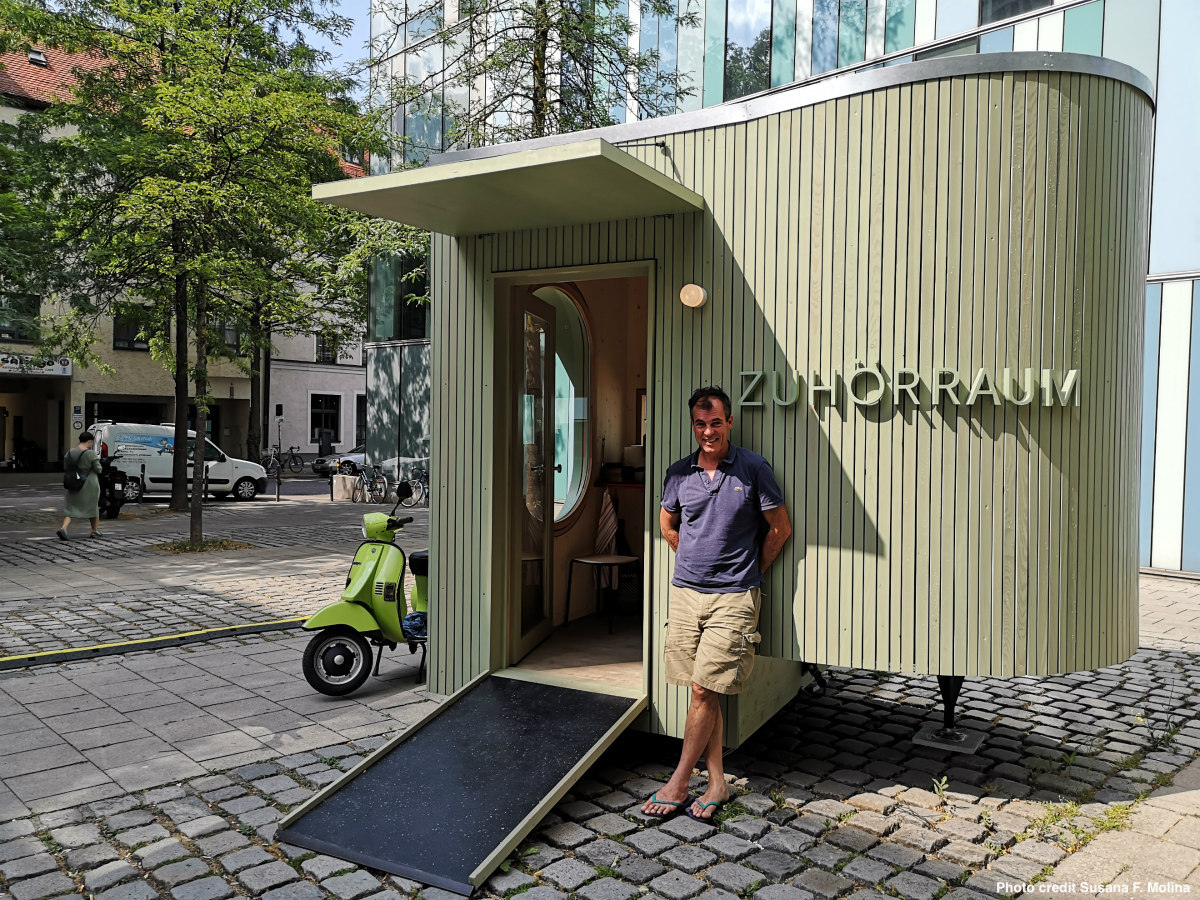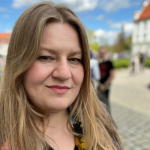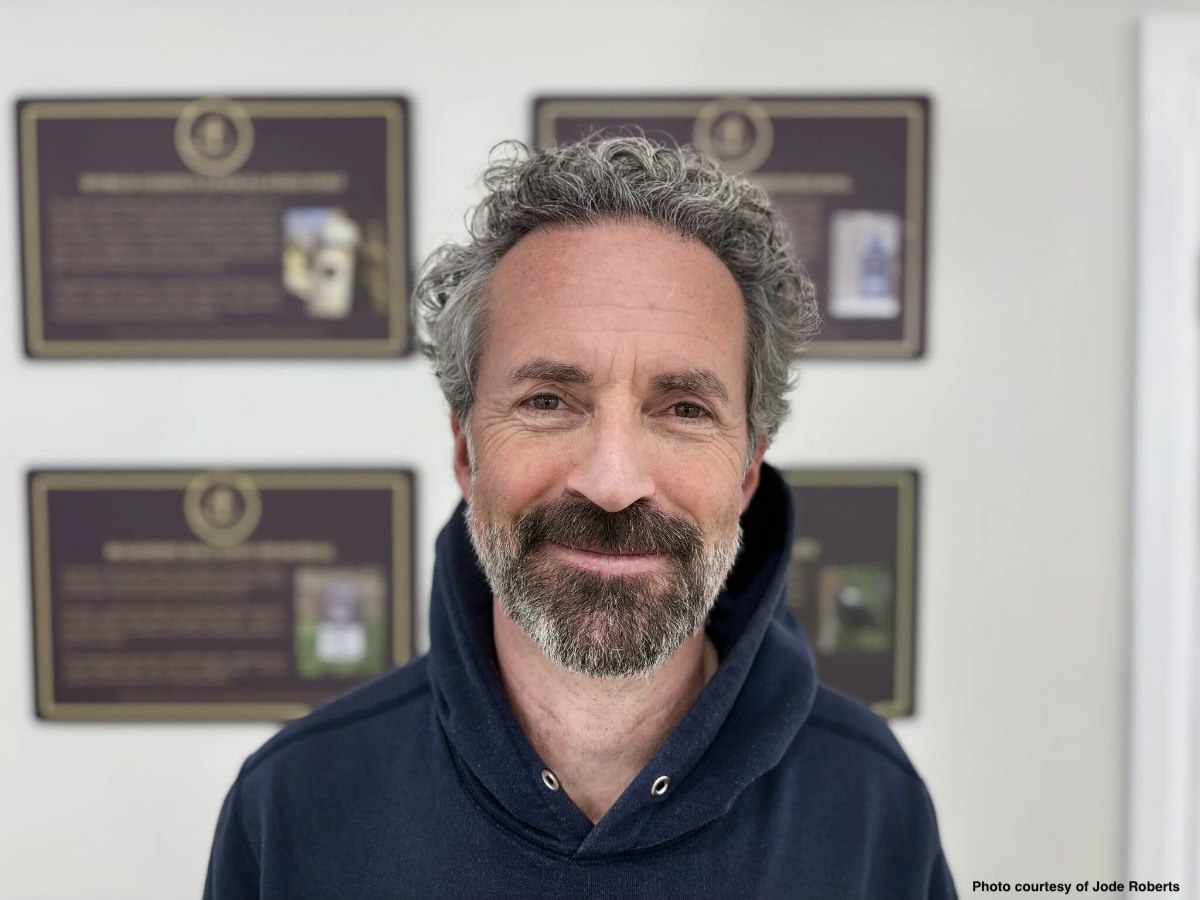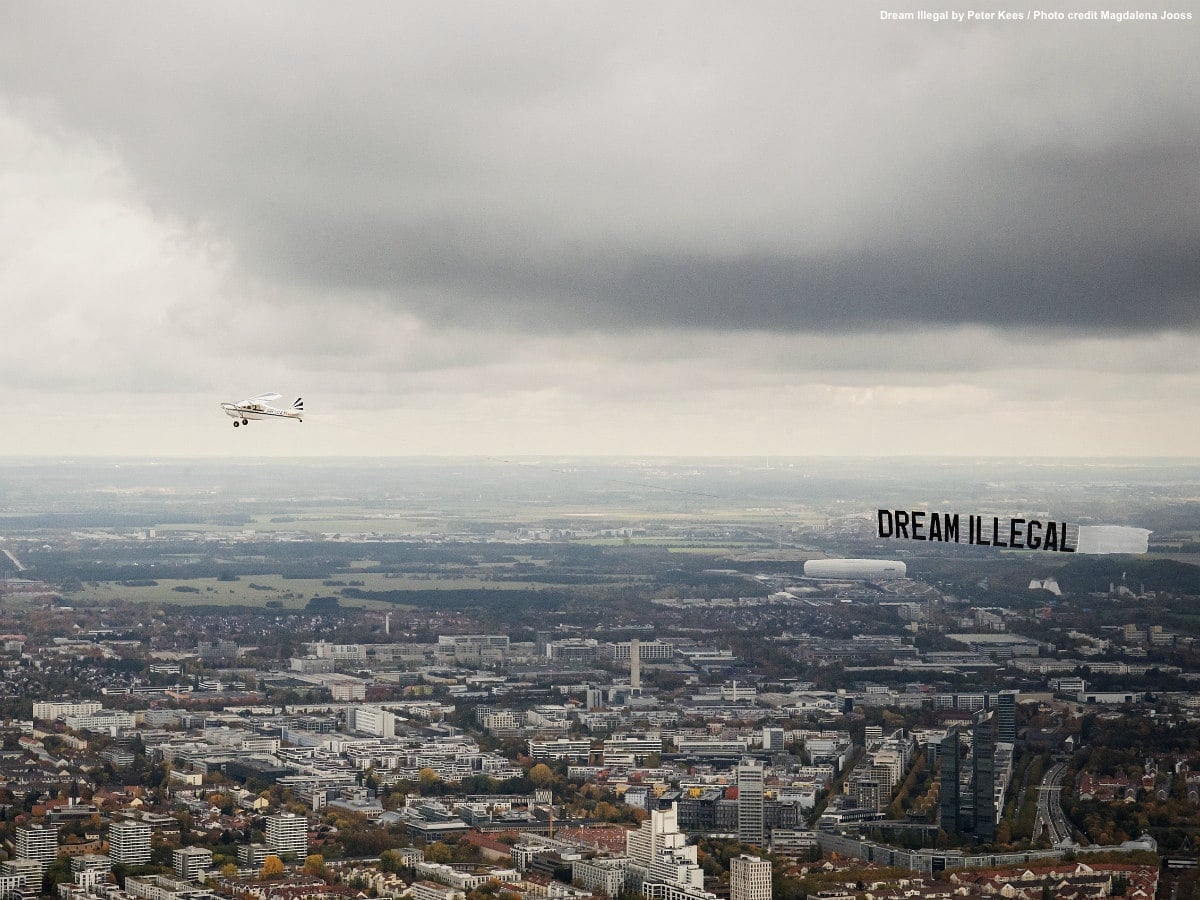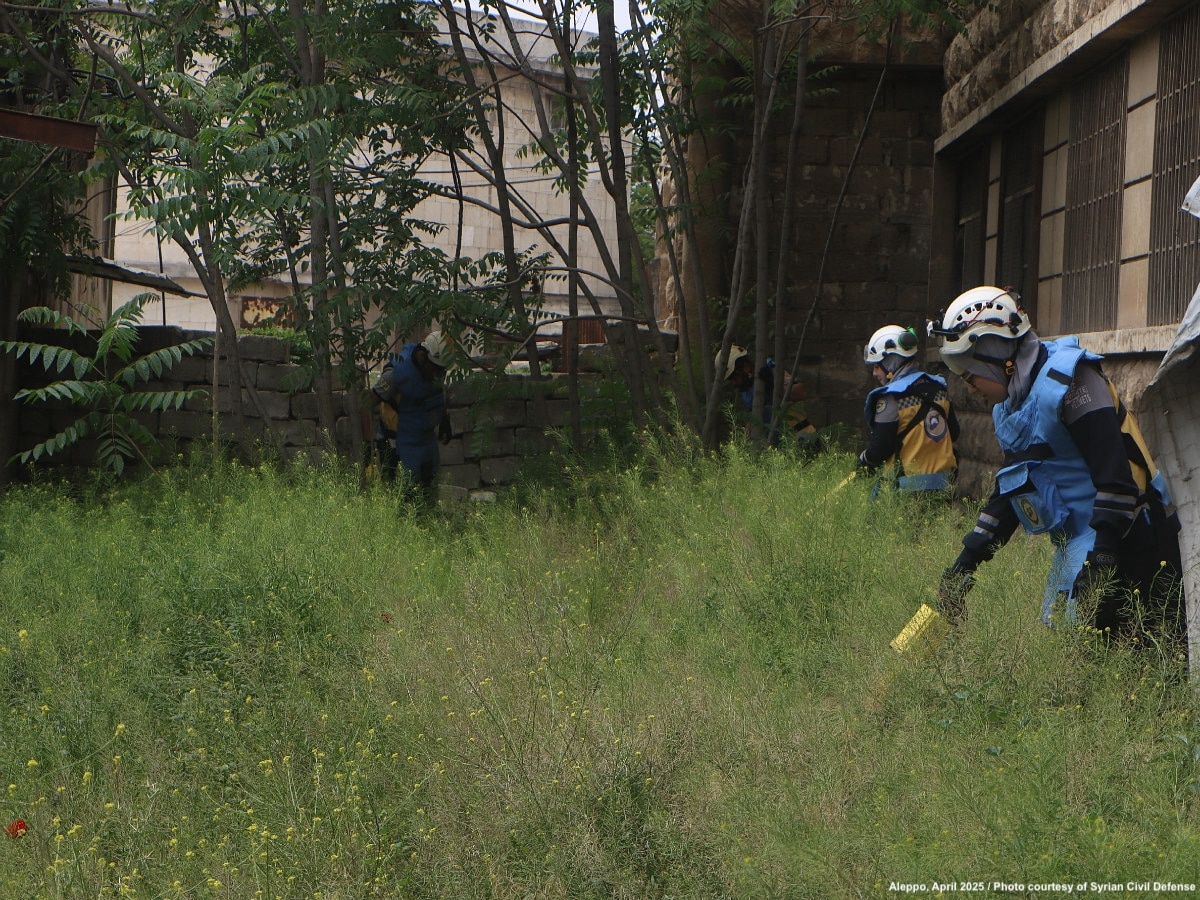Earlier this summer, a mint-coloured wooden little house was found in downtown Munich, not far from the famous Viktualienmarkt. The construction made of geometric shapes evokes a sense of nostalgia. Like an oversized shell of a snail with a retro look, it fits into a public square, or rather an urban non-place, which lacks its own name. This structure, the size of a pickup truck, attracts the curiosity of passers-by. Is it a café bar or a kiosk? Or is there something else on offer? If you get closer, the scenario inside is largely visible through the glass door and windows: there is a coffee machine and a bench, similar to those found in a mobile home; otherwise, the room is mainly empty. At first glance, and where you would least expect it, it is not about consumption: no vegan ice cream, no business plan, just listening.
This place in Munich is called Zuhörraum, a listening room in English, where every weekday one of the ‘deep listeners’ welcomes passers-by during the opening hours. The setting should enable nothing more or less than starting a conversation. Accessible without visible barriers, if you are interested, you can simply stay by the door, take a seat on a step in the entrance area, or sit face-to-face in a semicircle inside – an intimate area that is a little more protected from the outside.
One person comes and tells about himself and his whereabouts. A ‘deep listener’ is on site to pay attention. “Zuhörraum. We’re listening,” her business card reads, “Everybody’s story. Every joy. Every sorrow. Every human being.” It is not about replacing professional help; it is about offering tips and attention, not advice or a holistic solution for personal crises. Everyday conversations should fill the listening room.
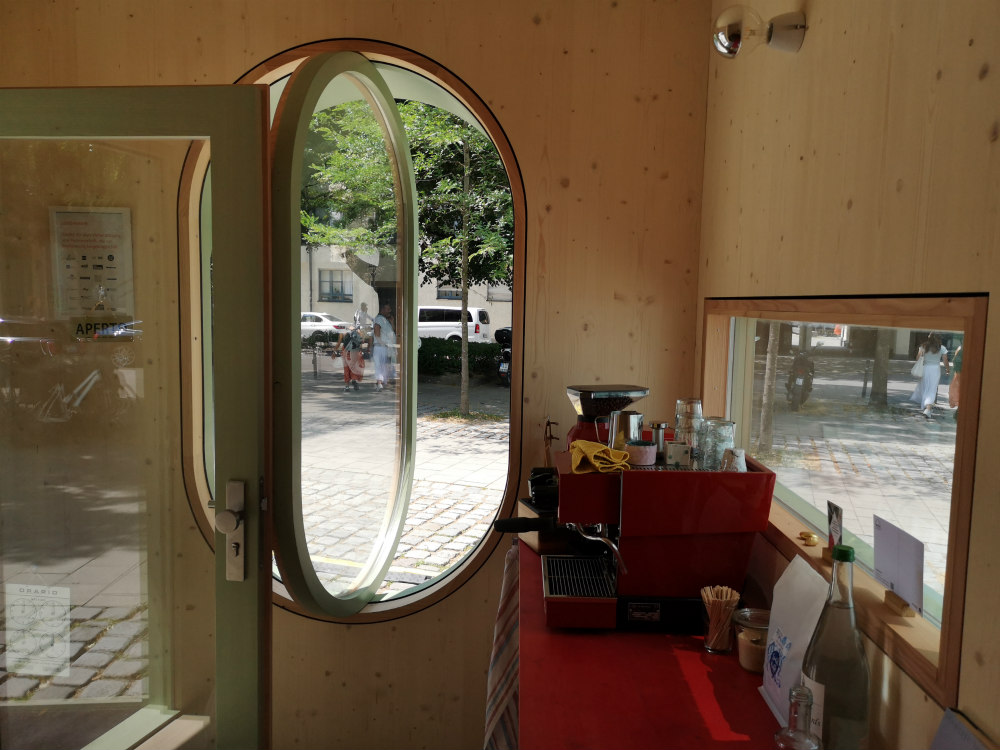
Sociologist Ray Oldenburg coined the term “third place” in the 1980s, referring to a physical location other than work or home that is easily accessible and where people’s interactions spontaneously occur. For three semesters, students of Professor Florian Nagler, a design and Construction Expert at the Technical University of Munich, have collaboratively created this listening space, a room constructed from timber. The impetus for this idea and the location came from the Munich entrepreneur Michael Spitzenberger. His organization is called momo hört zu! (in English, momo listens to) advocates for people to connect and listen to one another. Connect, reconnect, and encounters should become acquaintances. “People are happy when somebody listens to them,” says Spitzenberger with a smile.
Everyone has the opportunity to make a shorter or longer stop at the listening room, to have a coffee, and to talk: momo hört zu! could be a solution for a third place with potential for development. Spitzenberger drew on the main character of the same name in Michael Ende’s 1973 novel Momo, or, as the full title reads, The strange story of the time-thieves and the child who brought the stolen time back to the people. In this sense, the listening room can also be understood as a kind of late-modern time capsule, composed of stories and serving as a third place for communication in Oldenburg’s sense.
Munich is home to a diverse range of people. How do people live together in the city nowadays? Where do they meet – sometimes unexpectedly? A city needs spaces for encounters. However, the city of today is often not designed for people and their needs beyond consumption, work, and optimization. You can hardly find a bench or a seat to rest and pause for a moment. The city thus reflects a restless society that no longer knows any resonant spaces because, driven by its own demands, it just keeps going. “Increasingly there is no time and consciousness for any random act of kindness,” says Spitzenberger.
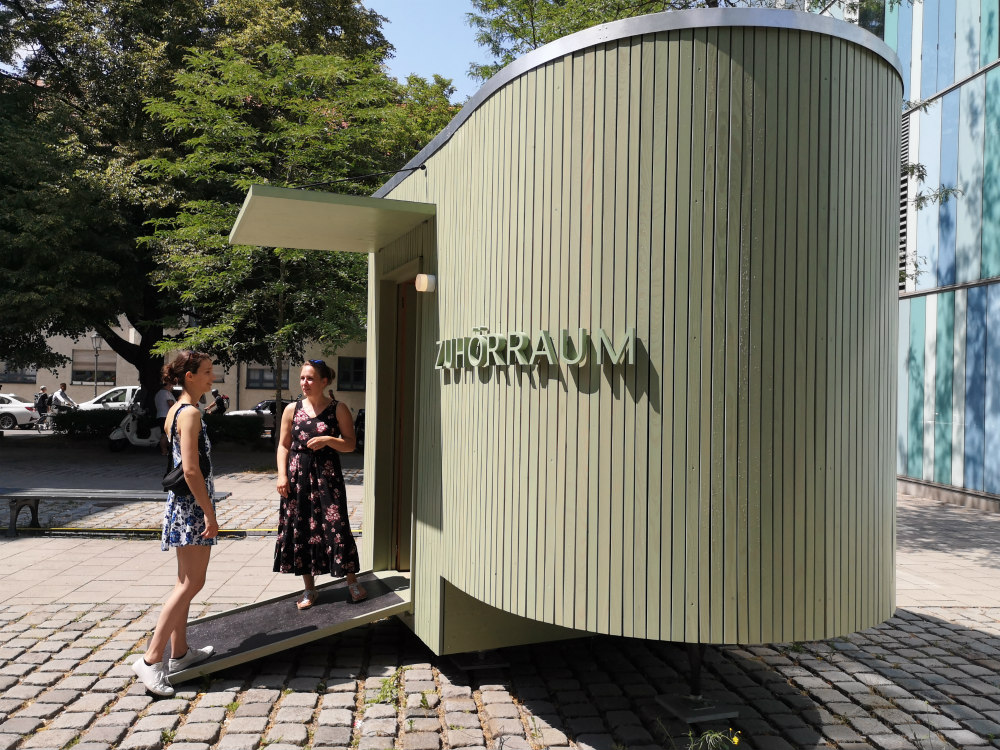
Digitization, new forms of mobility, and the struggle for sustainability are major challenges of our time. Climate change takes its toll. Yet we continue to defend our habits, despite the realities changing, as massive changes lie ahead. Binding communication platforms, such as evening news programs, no longer play a role. Even if it is technically possible to communicate with people anywhere in the world, many individuals are often left alone. The emphasis on valuing oneself over others has reached a moment in time; today, it is primarily individuals who coexist in a city. Everyone wants to be unique and stand out from the crowd, but many are lonely at the same time.
People are happy when somebody listens to them.
Munich has been Germany’s No.1 capital for singles for a long time. At the workplace, there are hardly any breaks; optimization comes before self-awareness. Stress is the common thread that everyone can relate to. The more stressed, it seems, the better the business is going. And yet it seems that this unhealthy development has now come to an end. The city – and with it its people – is in danger of collapsing under the weight of permanent overload.
How can the city of tomorrow be imagined? Which rooms are necessary for a society that has exhausted its efficiency? As part of the City Makers Conference, held in Munich in July 2022, Ursula Münch, head of the political academy in Tutzing, highlighted the need for consumption-free spaces in a democratic society. In the city, such places must be created with the aim of communication – and maintained, not only to make participation possible, but to make living together possible. This can include setting up a bench where people you know and those you don’t know can talk to each other. However, it can also be a garden or a neighborhood gathering place where people from different backgrounds meet informally. These are all reasons why Spitzenberger developed the listening room.
What characterizes an urban society? It’s polyphony, which must be preserved in the spirit of a lively urban structure. A city is based on the division of labor; in a condensed form, there are numerous tasks to be dealt with simultaneously. The people who hold various jobs – from the principal to the cleaner, the educator to the teacher, the street sweeper to the entrepreneur – all those who work in the city must also be able to communicate effectively to maintain a healthy balance. Oldenburg explored in his book, The Great Good Place, how a third place could positively impact democracy, neighborhood communities, and the well-being of urban dwellers. Spitzenberger thinks one of the main pillars is listening.
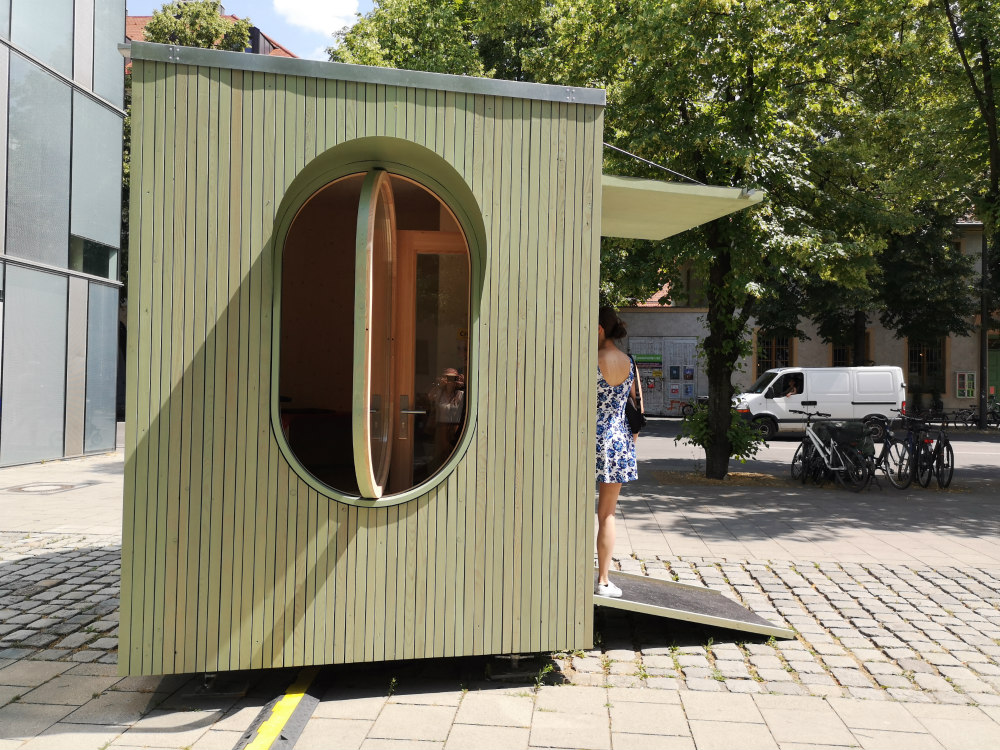
In a contribution to the German radio station Deutschlandfunk, author Anne Müller shared some thoughts on listening nowadays. “In a personal conversation, listening means concentrating on the other person, making eye contact, literally ‘seeing’ the other person with what he or she is confiding to me,” summarizes Müller. Beyond paying attention, it is about developing a holistic perception that evolves into a form of empathy connected to meaningful listening. Listening means taking time for the other and giving space.
A city that is increasingly dominated by private and economic interests literally needs third places or spaces for in-between activities, such as the listening room. They must make encounters possible and open up a dialogue in which the issues of our time, fears, and desires in our society can be discussed. These places – whether for temporary interim uses or reserved for citizens in the long term, large or small interfaces in public space – always represent a complex understanding of how to manage resources and urban land.
During the three months that the listening room was located not far from Munich’s Viktualienmarkt, many people discussed what motivates them, as well as a range of other topics. Additionally, around 25 people signed up to participate in the project and serve as ‘deep listeners’ in the future. They are between 18 and 75 years old. Firstly, explains Spitzenberger, who is a trainer, they should be sensitized to their role as ‘deep listeners.’
With the initiative listening room, he tries out new strategies for mental health, thereby touching on the economic and political nerve of our time, of course without – and this can be critically assessed – going too deep into the matter or taking on social responsibility. “How do people achieve self-efficacy?” is Spitzenberger’s credo. There will never be enough third places to pause, reflect, and most importantly, to listen in the city.
